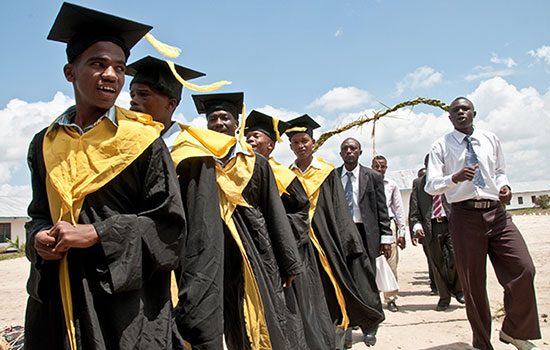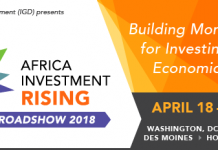African and U.S. educators and education innovators will gather in Lagos, Nigeria, on Sept. 2 for the Africa-America Institute’s Second Annual State of Education in Africa conference, aimed at crafting a bold agenda to improve the educational landscape in Africa. Co-sponsored by The Ford Foundation with support from the World Bank, the daylong conference at the InterContinental Hotel will assess the progress of education at all levels in Africa and identify the sector’s opportunities and challenges.
The conference comes amid reports that education is a major bottleneck to youth employment on the continent.
In a survey among experts on 36 African countries about the major challenges youth face in labor markets, 54 percent found a mismatch of skills between what job seekers have to offer and what employers require to be a major obstacle, African Economic Outlook (AEO) reports. The mismatches occur among university and high school graduates alike.
“Although there are large numbers of unemployed young people and a constantly growing labor supply, many enterprises in Africa struggle to fill open positions. In Egypt, for example, about 1.5 million young people are unemployed, while at the same time private sector firms cannot fill 600,000 vacancies,” AEO says. “In South Africa the situation is even more extreme, with 3 million young people in NEET (not in employment, education or training) and 600,000 unemployed university graduates versus 800 000 vacancies,”
The AEO is a collaborative endeavor of the African Development Bank, the OECD Development Centre and the United Nations Development Program, providing comprehensive and comparable data and analysis of 54 African economies.
UNESCO statistics, meanwhile, show that prosperity is slow in trickling down to the greater population, as some 30 million children in sub-Saharan Africa were not enrolled in school in 2011, according to AAI. Statistics reveal that 42 percent of African school children will drop out of school early, with about one in six leaving before Grade 2. Overall, more than two in five children who start school will never reach the last grade of primary education, UNESCO cited.
These education statistics are startling for a continent that boasts some of the world’s fastest growing economies.
“The African education system stands at a pivotal crossroad. The State of Education in Africa conference seeks to elevate discussions on how education is an engine of economic growth and development in Africa and to mobilize a strong commitment to implementing innovative solutions and practical interventions to transform the education system,” says Amini Kajunju, AAI’s president and CEO.
“As the world’s most youthful continent, the working age population is expected to grow at a rapid pace at more than 10 million each year. African young people must be educated and equipped with the skills and knowledge for jobs necessary to sustain economic growth and make the continent competitive in a knowledge-based economy,” Kajunju adds.
Some of the world’s leading education experts, including Patrick Utomi, founder/CEO of Centre for Values in Leadership, will serve as keynote speakers and panelists at the annual education conference. Panel discussions will focus on such topics as teacher training, global best practices in education, vocational and technical training, early childhood education, and reforming science and technology education in Africa.
Innovations in education to improve learning outcomes continue to flourish throughout Africa. The conference will feature its first-ever PitchFest, an innovative competition that put forth cutting-edge ideas, tools, information and technologies that can help bring about a better educational system in Africa.













